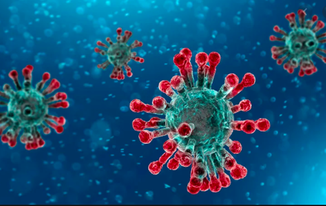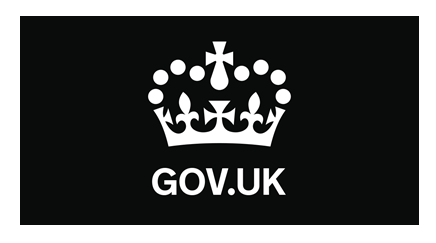|
If you didn't get chance to listen in full to the latest press briefing from the government on Thursday 12 March 2020 and you wonder what is happening - or not - especially when we look at other countries across Europe - then you probably ought to if only to be saved from sound bites which don't show the full picture (You can listen to it here - https://www.youtube.com/watch?v=_UdqF_R1ziE&t=1511s). I've been trying to make sense of this in my own limited way and then came across a series to tweets by Professor Ian Donald (@iandonald_psych) which I found very helpful.
I'm not saying you should agree with it - but we owe it to ourselves to at least understand the strategic rationale behind it and his tweets are extremely informative in this regard and for that reason I wanted to share them. 15 Tweets by Professor Ian Donald. Psychologist: Social, & Environmental research, & behavioural factors in Anti-Microbial Resistance. Emeritus Professor, University of Liverpool. 1. The govt strategy on #Coronavirus is more refined than those used in other countries and potentially very effective. But it is also riskier and based on a number of assumptions. They need to be correct, and the measures they introduce need to work when they are supposed to. 2. This all assumes I'm correct in what I think the govt are doing and why. I could be wrong - and wouldn't be surprised. But it looks to me like. . . 3. A UK starting assumption is that a high number of the population will inevitably get infected whatever is done – up to 80%. As you can’t stop it, so it is best to manage it. There are limited health resources so the aim is to manage the flow of the seriously ill to these. 4. The Italian model the aims to stop infection. The UKs wants infection BUT of particular categories of people. The aim of the UK is to have as many lower risk people infected as possible. Immune people cannot infect others; the more there are the lower the risk of infection 5. That's herd immunity. Based on this idea, at the moment the govt wants people to get infected, up until hospitals begin to reach capacity. At that they want to reduce, but not stop infection rate. Ideally they balance it so the numbers entering hospital = the number leaving. 6. That balance is the big risk. All the time people are being treated, other mildly ill people are recovering and the population grows a higher percent of immune people who can’t infect. They can also return to work and keep things going normally - and go to the pubs. 7.The risk is being able to accurately manage infection flow relative to health case resources. Data on infection rates needs to be accurate, the measures they introduce need to work and at the time they want them to and to the degree they want, or the system is overwhelmed. 8. Schools: Kids generally won’t get very ill, so the govt can use them as a tool to infect others when you want to increase infection. When you need to slow infection, that tap can be turned off – at that point they close the schools. Politically risky for them to say this. 9. The same for large scale events - stop them when you want to slow infection rates; turn another tap off. This means schools etc are closed for a shorter period and disruption generally is therefore for a shorter period, AND with a growing immune population. This is sustainable 10. After a while most of the population is immune, the seriously ill have all received treatment and the country is resistant. The more vulnerable are then less at risk. This is the end state the govt is aiming for and could achieve. 11. BUT a key issue during this process is protection of those for whom the virus is fatal. It's not clear the full measures there are to protect those people. It assumes they can measure infection, that their behavioural expectations are met - people do what they think they will 12. The Italian (and others) strategy is to stop as much infection as possible - or all infection. This is appealing, but then what? The restrictions are not sustainable for months. So the will need to be relaxed. But that will lead to reemergence of infections. 13. Then rates will then start to climb again. So they will have to reintroduce the restrictions each time infection rates rise. That is not a sustainable model and takes much longer to achieve the goal of a largely immune population with low risk of infection of the vulnerable 14. As the government tries to achieve equilibrium between hospitalisations and infections, more interventions will appear. It's perhaps why there are at the moment few public information films on staying at home. They are treading a tight path, but possibly a sensible one. 15. This is probably the best strategy, but they should explain it more clearly. It relies on a lot of assumptions, so it would be good to know what they are - especially behavioural. Most encouraging, it's way too clever for #BorisJohnson to have had any role in developing.
1 Comment
 According to Bill Gates, 'In the past week, COVID-19 has started to behave a lot like the once-in-a-century pathogen we’ve been worried about. I hope it’s not that bad, but we should assume that it will be until we know otherwise.' For sure we're all now acting like it is and our conversations are freaking us out. The disruption it creates and the fear it instils is outside our normal experience in the West and is unprecedented in the lifetime of many of us. So what are we to do? Here are few thoughts as we journey together through unchartered waters. They are not in any particular order - and neither are they exhaustive but they are the things that are running through my mind at the moment.
Some spiritual stuff... Christ’s not just for Christmas - he’s also for crisis. (And other things too, of course but let’s stay on track). Jesus has come to us so we can draw close to him. If you’re a person of faith this matters. So how can you dig deeper into your faith at this time and how can it help you and others? A few thoughts .... Take time to connect with God and pay attention to your own spirituality. Consider the following as pathways to help with this.
If you are unsure then here’s a few ideas...
And finally for now, Jo came across these comments recently, ‘Listen to the medical experts and take appropriate measures (wash your hands etc). But we need to replace our fear with faith and pray for our nation, that God would protect us. Philippians 4 reminds us: 'Don't worry anything and pray about everything’ Our God is bigger than the coronavirus. So they are some of my thoughts – what helpful articles, scriptures, links etc have you found – please let me know in the comments below. |
Author
Archives
December 2022
Categories
All
|

 RSS Feed
RSS Feed
